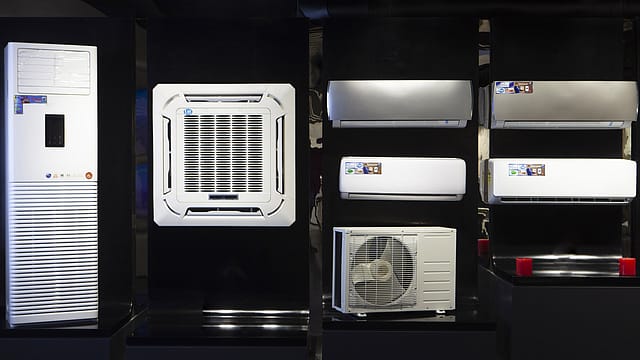Toys, ACs, helmets, footwear among 387 products to follow Indian quality standards
ADVERTISEMENT

The central government has notified compulsory BIS (Bureau of Indian Standards) certification requirements for 387 products through 101 quality control orders ever since May 2014, Piyush Goyal, Union Minister of Commerce & Industry, Consumer Affairs & Food & Public Distribution and Textiles has said.
According to a ministry statement, through the issuance of quality control orders (QCOs), the notified products shall conform to the requirements of the relevant Indian Standard and the manufacturers of these products have to compulsorily obtain certification from BIS. "After the date of commencement of the QCO, no person shall manufacture, import, distribute, sell, hire, lease, store or exhibit for sale any product(s) covered under the QCO without a Standard Mark except under a valid certification from BIS. As the QCOs are equally applicable to Indian manufacturers as well as foreign manufacturers, the Indian consumers are assured of the quality of such products manufactured in India as well as imported to the country," it said.
Overall, a total of 115 quality control orders (QCOs) covering 493 products have been notified so far, while 58 draft quality control orders for 316 standards are at different stages of processing. Overall, 675 products are under consideration by 14 ministries, the minister added.
Some of the recent examples of mandatory BIS certifications are toys (both electric and non-electric), helmets for two-wheeler riders, domestic appliances like air-conditioners, refrigerators, domestic cooker, LPG gas stove, safety glass (Architectural, Building and General uses) & safety glass (Road Transport), footwear and wheel rim.
"We had a delegation of EFTA member nations recently. When I shared that India is focusing on serious QCOs, largely aligned with international standards, they were impressed and complimented the government on never before seen focus on quality," he said.
The minister said that based on the discussion between concerned ministries and BIS, more products have been identified for notifying them under QCOs and mandating compulsory certification of BIS and implementation of Indian Standards.
BIS has also formulated an Indian Standard IS 17799:2022 for Unmanned Aerial Vehicles (UAV) – Drones for Agricultural Purposes. This Standard is used in agriculture for various tasks e.g. soil analysis, irrigation, crop mapping, and pest management. Compliance with this standard ensures the drone is compatible with agrochemicals and can work satisfactorily with variable payload during, before, and after the application.
Similarly, the Standard on Unmanned Aerial Vehicles (UAV) – General Requirements, Testing Requirements of Sub-systems & Cyber security is under development, the minister said. This Standard is meant to ensure the design and maintenance requirements such as requirements of Control & Stability, Propulsion system, Flight control system, Geo-fencing, the performance of various subsystems such as Control Systems, Mission Profile, Software under various environmental conditions of temperature, pressure, humidity, rain, vibration. Cyber security is essential in drones for protection from cyber-attacks, unauthorized access, and theft of data. The document is being developed on the basis of Risk identification. Compliance to this document will ensure protection of sensitive data, maintaining privacy, ensuring safe operation, and preventing hi-jacking.
BIS has also formulated five Indian Standards on E-Vehicles & Charging Infrastructure - IS 17855:2022 (for Electrically propelled road vehicles - lithium-ion traction Battery packs and systems), IS 18073:2023 (for Electric Traction Motor), IS 17191 Series (Standards for measurement of Range, Energy consumption and net power in E-vehicles), IS 17017 Series (Standards on E- vehicle Charging infrastructure – Conducting Charging Systems) and IS 17896 Series (Standards on general guidance and safety requirements of Battery Swapping Systems).